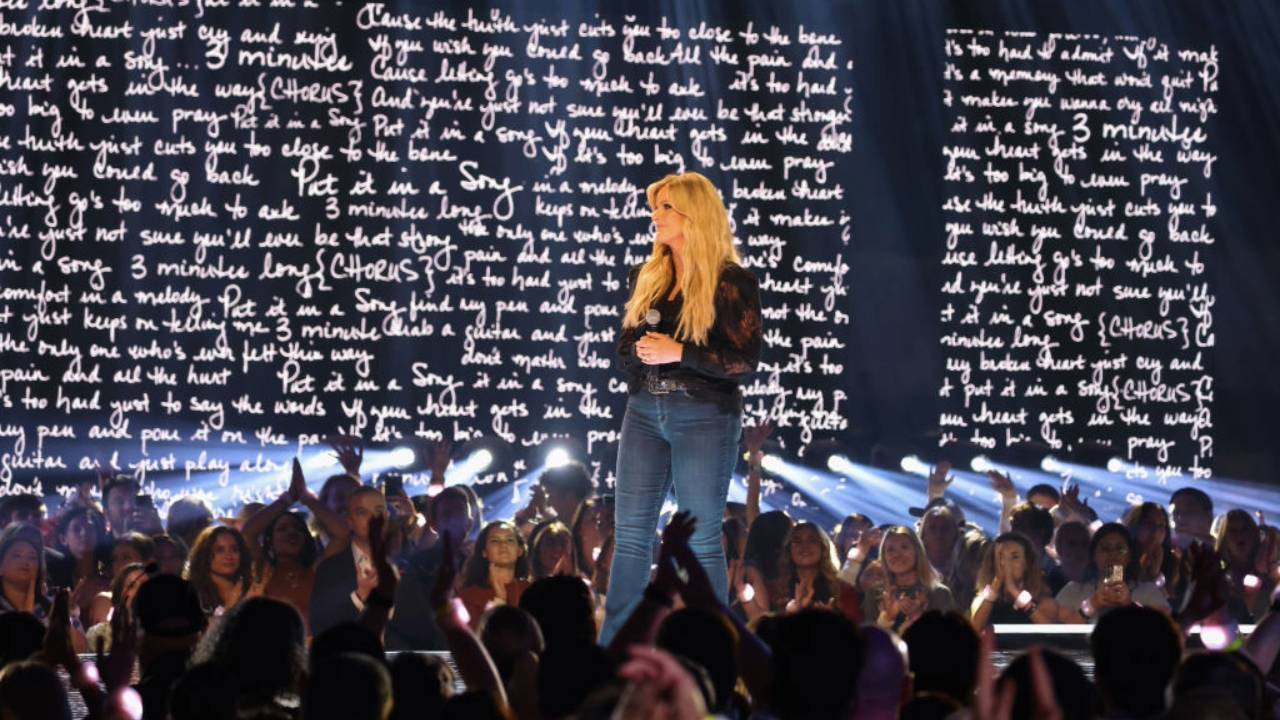Barbara Mandrell, Roy Clark, Charlie McCoy Headed to Country Music Hall of Fame

Updated on Feb. 4, 2009, at 5:15 p.m. ET.
Barbara Mandrell, Roy Clark and session musician Charlie McCoy will be the newest inductees into the Country Music Hall of Fame. The announcement was made Wednesday morning (Feb. 4) during a press conference at the Country Music Hall of Fame and Museum in downtown Nashville.
Mandrell is best known for hosting Barbara Mandrell and the Mandrell Sisters, an NBC variety series in the early '80s, and for a string of hits that includes "Sleeping Single in a Double Bed" and "I Was Country When Country Wasn't Cool."
Clark had worked in the bands of Jimmy Dean and Wanda Jackson before gaining national attention through a series of appearances on The Beverly Hillbillies and as a co-host of Hee Haw. He became a national celebrity as a guest host for Johnny Carson on The Tonight Show. In the '70s, he also headlined a groundbreaking tour of the Soviet Union, selling out 18 concerts while bringing country music to a wider international audience.
McCoy, a multi-instrumentalist, is regarded as the most-recorded harmonica player in history. His session credits include Roy Orbison's "Candy Man" and George Jones' "He Stopped Loving Her Today." In addition to his sessions with country artists, he has also played on recordings by Bob Dylan, Simon & Garfunkel, Joan Baez and Ringo Starr.
During Wednesday's press conference, the media pretty well figured out this was Barbara Mandrell's year to join the Country Music Hall of Fame as soon as they saw her family members file into their seats at the Ford Theater, where the announcements were made. But the induction of Clark and McCoy seemed to catch everyone by surprise.
Each inductee chose the person to introduce him or her. For McCoy, it was Mel Tillis. Clark picked his old friend, retired country singer Carl Smith. Mandrell chose her younger sister, Louise.
Tillis said he first met McCoy in 1959, when the then 17-year-old musician was playing in a Miami nightclub. He was so impressed by McCoy's instrumental versatility that he advised the youngster to take his music to Nashville. There he wound up playing on demos at Cedarwood, the publishing company Tillis wrote for.
McCoy's remarks consisted primarily of thanking a long list of people -- many of them now deceased -- who "really helped me along the way." Among these were his mother, who bought him his first harmonica. "Fifty cents was a lot of money for a single mother in 1949," he said. He also praised his father. "I spoiled his dreams of a son going to college."
High on McCoy's list were two record producers and label executives -- the late Owen Bradley and Chet Atkins. Neither offered him a record deal, but both used him for session work. He also thanked Monument Records founder Fred Foster, who did give him a record deal and kept putting out albums on him until he finally achieved a measure of success as a recording act.
He tipped his hat to fellow A-team members Grady Martin, Harold Bradley and Hargus "Pig" Robbins ("the greatest session player I've ever known -- he still inspires me.") McCoy was equally grateful to Sam Lovullo, the producer of Hee Haw, who persuaded him to become the TV show's bandleader, a post he held for 18 seasons.
"All I've ever wanted to do," McCoy said, was play with the great people in this Hall. ... And, guess what, I ain't through playing yet."
Smith, who firmly dealt himself out of the music business in the 1970s after almost 30 years of making hits, told the crowd he was back in Nashville only because Clark had requested his presence. "We've had some good times together -- several times," Smith said.
Clark said he hadn't given much thought about joining the Hall of Fame until he noticed that so many of his friends were there. "I think what happened," he said with a grin, "is that I lasted long enough until they ran out [of other candidates]."
He spent more time talking about Smith than Smith had about him. Clark recalled playing a series of three shows with Smith on a torrid summer day at Buck Lake Ranch in northern Indiana. The venue featured stagecoach rides and simulated western gunfights between shows.
Clark had a rental car and offered to drive Smith to Chicago after the last show so he could catch a plane to Nashville. Fairly early into his last set, Clark said he heard this booming voice behind him saying, "It's time to go, Clark." Then a few minutes later the voice said, "OK, Clark, I've got a plane to catch."
Ever the showman, Clark ignored these distractions. "Then," he recalled, "out comes this arm with a wire cutter on it and cut one of my guitar strings." Still, Clark sang on. "I didn't give up until he cut the fifth string. When the bridge flew out into the audience, I knew my show was complete."
Louise Mandrell recounted her sister's progress from fledgling performer in the family band to her ascent to recording and TV stardom.
Mandrell seemed almost in tears when she came out and saw the crowd's standing ovation. She acknowledged Clark, now seated in the front row, as "just a flat-out, slammin' entertainer." She thanked McCoy for introducing her and her family to the joys of ice hockey, adding with a reference to Nashville's NHL team, "Go Predators!"
Like McCoy, Mandrell wanted to talk about the people who had helped her in her career, principally her family. Ken Dudney, her husband of 41 years, was there to cheer her on, as were her two oldest children, Matthew and Jaimie. Her youngest son, Nathan, was in school at Ole Miss.
She spotted Rose Maphis seated in the audience and asked her to stand up. She said "Aunt Rose" and her husband, guitarist Joe Maphis, hired her for her first job.
"The only reason I could afford to have beautiful clothes [when I first came to Nashville]," Mandrell told the audience, "was because my mother made them." She said her father, Irby, did everything for her in the early days from booking shows to driving their dilapidated old bus "sometimes 16 hours a day."
She said her father supported her musical ambitions every step of the way. When she was learning to play the steel guitar, he played rhythm guitar for her as she practiced. When she faced the boredom of saxophone exercises, he kept up her spirits and the beat by banging a coat hanger on a music stand. When she sang, he told her not to sing to him but to the people across the street.
"This is me being honored," she said, "but this is Irby Mandrell being honored, too, because he deserves it."
Praising the musicianship of Clark and McCoy and adding that she, too, "picks a little," Mandrell exclaimed, "How cool to go in with you guys!"





